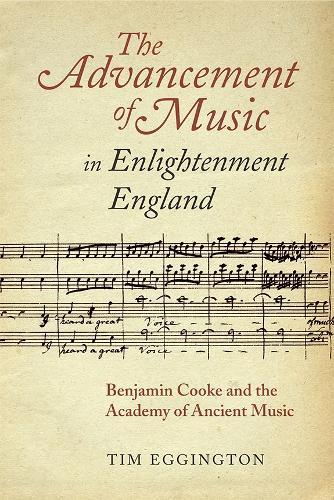Overview
Casts new and valuable light on English musical history and on Enlightenment culture more generally. This is a book guaranteed to make waves. It skilfully weaves the story of one key musical figure into the story of one key institution, which it then weaves into the general story of music in eighteenth-century England. Anyone reading it will come away with fresh knowledge and perceptions - plus a great urge to hear Cooke's music.' Michael Talbot, Emeritus Professor of Music at the University of Liverpool and Fellow of the British Academy. Amidst the cosmopolitan, fashion obsessed concert life of later eighteenth century London there existed a discrete musical counterculture centred round a club known as the Academy of Ancient Music. Now largely forgotten, this enlightened school of musical thinkers sought to further music by proffering an alternative vision based on a high minded intellectual curiosity. Perceiving only ear-tickling ostentation in the showy styles that delighted London audiences, they aspired to raise the status of music as an art of profound expression, informed by its past and founded on universal harmonic principles. Central to this group of musical thinkers was the modest yet highly accomplished musician-scholar Benjamin Cooke, who both embodied and reflected this counterculture. As organist of Westminster Abbey and conductor of the Academy of Ancient Music for much of the second half of the eighteenth century, Cooke enjoyed prominence in his day as a composer, organist, teacher, and theorist. This book shows how, through his creativity, historicism and theorising, Cooke was instrumental in proffering an Enlightenment-inspired reassessment of musical composition and thinking at the Academy. The picture portrayed counters the current tendency to dismiss eighteenth-century English musicians as conservative and provincial. Casting new and valuable light on English musical history and on Enlightenment culture more generally, this book reveals how the agenda for musical advancement shared by Cooke and his Academy associates foreshadowed key developments that would mould European music of the nineteenth century and after. It includes an extensive bibliography, a detailed overview of the Cooke Collection at the Royal College of Music and a complete list of Cooke's works. TIM EGGINGTON is College Librarian at Queens'College, Cambridge.
Full Product Details
Author: Tim Eggington
Publisher: Boydell & Brewer Ltd
Imprint: The Boydell Press
Volume: v. 11
Dimensions:
Width: 15.60cm
, Height: 2.50cm
, Length: 23.40cm
Weight: 0.001kg
ISBN: 9781843839064
ISBN 10: 1843839067
Pages: 319
Publication Date: 16 October 2014
Audience:
College/higher education
,
Professional and scholarly
,
Postgraduate, Research & Scholarly
,
Professional & Vocational
Format: Hardback
Publisher's Status: Active
Availability: In Print

This item will be ordered in for you from one of our suppliers. Upon receipt, we will promptly dispatch it out to you. For in store availability, please contact us.
Reviews
A valuable addition to 18th century English music. EARLY MUSIC REVIEW(Eggington) demonstrates Cooke's innovative references to various old styles with deliberation and taste, and argues that Cooke deserves a prominent position among 18th-century composers. Recommended. CHOICE




